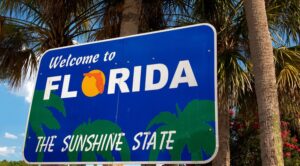Why is homeowners insurance in Florida so expensive?
Home insurance in Florida is notably more expensive than in many other states, and several key factors contribute to this trend:
1. High Risk of Natural Disasters
Florida’s geographic location makes it highly susceptible to hurricanes, tropical storms, and flooding. The state’s long coastline and low elevation increase the likelihood of storm surge and flooding. Insurance companies account for these risks, leading to higher premiums.
2. Frequent Claims
The high frequency of claims due to natural disasters increases the cost of doing business for insurance companies. This increased risk and frequency of claims drive up premiums for all homeowners in the state.
3. Reinsurance Costs
Insurance companies purchase reinsurance to protect themselves from large losses, particularly from catastrophic events. In Florida, the high potential for disasters means that reinsurance costs are substantial, which are then passed on to homeowners through higher premiums.
4. Building Costs and Regulations
Florida has stringent building codes designed to minimize damage from hurricanes. While these regulations help protect homes, they also increase construction costs, which can lead to higher insurance premiums. Additionally, older homes that do not meet modern standards may face even higher rates.
5. Litigation and Fraud
Florida has a high incidence of insurance fraud, particularly related to roofing scams and water damage claims. Legal fees and settlements add to the overall cost of insurance, which companies mitigate by raising premiums.
6. High Demand and Limited Supply
The increasing population and demand for housing in Florida contribute to the higher cost of home insurance. The limited availability of insurance options, particularly in high-risk areas, can further drive up prices.
7. State Regulations
State regulations and the competitive landscape also play a role. For instance, state-mandated windstorm coverage can be costly, and the lack of competition in certain regions allows companies to set higher rates.
Top 10 Most Expensive Cities for Home Insurance in Florida
- Miami
- The high risk of hurricanes and flooding makes Miami one of the most expensive cities for home insurance.
- Key West
- The island’s exposure to hurricanes and tropical storms contributes to high premiums.
- Naples
- The coastal location and high property values lead to higher insurance costs.
- Fort Lauderdale
- Similar to Miami, the risk of hurricanes and flooding drives up insurance costs.
- West Palm Beach
- The city’s coastal location and exposure to storms make it a high-risk area.
- Tampa
- Tampa’s location along the Gulf of Mexico increases the likelihood of hurricanes and flooding.
- Sarasota
- Another coastal city with a high risk of hurricanes and storm surges.
- Panama City
- The city faces a high risk of hurricanes and is still recovering from Hurricane Michael in 2018.
- Orlando
- While inland, Orlando still faces risks from hurricanes and tropical storms.
- Jacksonville
- The combination of coastal exposure and a large population makes Jacksonville a high-risk area.
Top 10 Cheapest Places to Live in Florida for Home Insurance
- Gainesville
- Inland location reduces the risk of hurricanes and flooding.
- Tallahassee
- Being further inland and north, Tallahassee generally has lower insurance premiums.
- Ocala
- Lower risk of hurricanes and relatively affordable housing.
- Lakeland
- Inland location and fewer extreme weather events contribute to lower insurance costs.
- Pensacola
- While coastal, Pensacola tends to have more affordable insurance than other Gulf Coast cities.
- Cape Coral
- Although coastal, the city generally has lower premiums compared to others in Southwest Florida.
- Fort Myers
- Similar to Cape Coral, Fort Myers offers relatively affordable insurance.
- Port St. Lucie
- Lower premiums due to a less active hurricane season and fewer claims.
- Deltona
- Inland location helps keep insurance costs down.
- Palm Bay
- Lower risk of extreme weather events results in more affordable insurance premiums.


No comments yet.